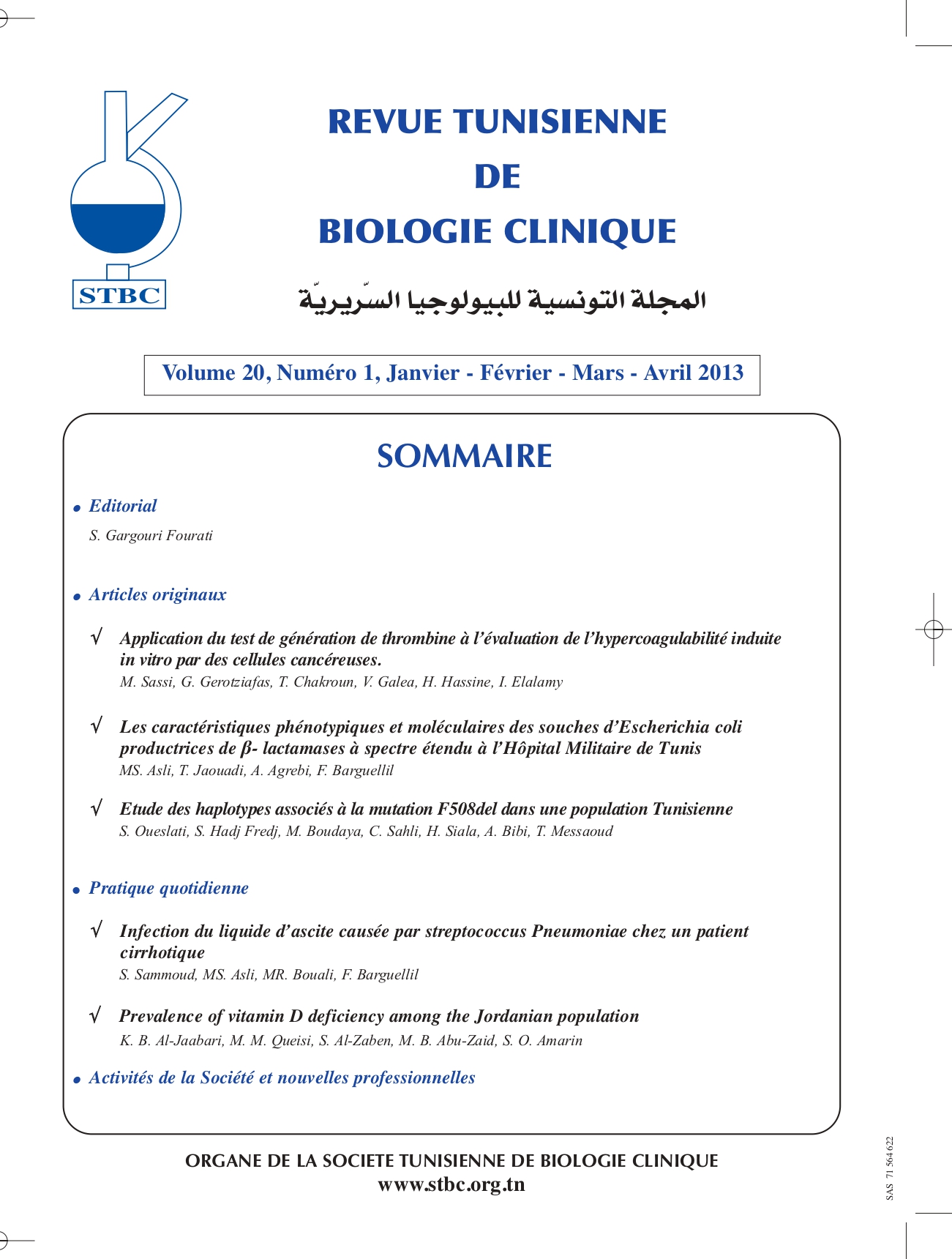Résumé
Les épisodes thrombotiques veineux constituent une complication fréquente et bien connue chez les patients atteint d’un cancer. L’expression constitutive du facteur tissulaire par les cellules cancéreuses est la cause majeure de la capacité procoagulante des cellules cancéreuses. Le test de génération de thrombine offre une mesure globale du potentiel de la coagu-lation. Il s’est imposé comme un outil d’apport considérable dans la détec-tion des états d’hypercoagulabilité. L’objectif de notre étude était de dévelop-per et d’optimiser un modèle expérimental pour caractériser le phénotype procoagulant des cellules IGROV1 issues d’un adénocarcinome humain épithélial de l’ovaire par le biais du test de génération de thrombine. La géné-ration de thrombine a été étudiée in vitro en plasma pauvre en plaquettes additionné de cellules cancéreuses. Nous avons montré que les cellules IGROV1 accélèrent et augmentent la génération de thrombine et que les paramètres chronométriques sont les paramètres les plus sensibles à l’augmentation du nombre de cellules cancéreuses. Ce modèle expérimental nous offre un outil précieux pour l’étude de l’hypercoagulabilité cellulaire induite par le cancer et nous ouvre la porte vers l’évaluation de la sensibilité des cellules cancéreuses aux divers anticoagulants.
Télécharger l'article

Ce travail est disponible sous la licence Creative Commons Attribution 4.0 International .
(c) Tous droits réservés M. SASSI, G. GEROTZIAFAS, T. CHAKROUN, V. GALEA, H. HASSINE, I. ELALAMY 2013


